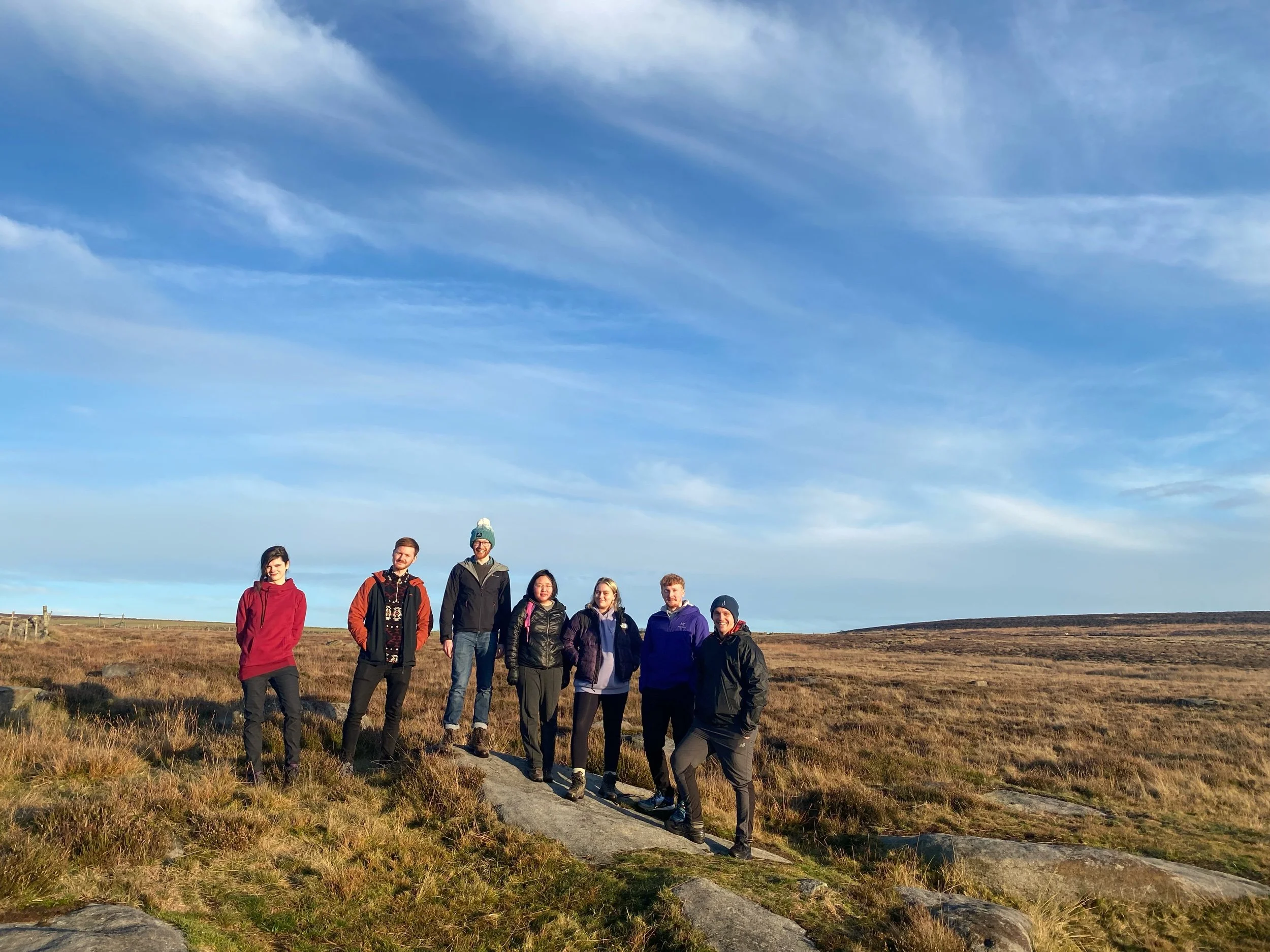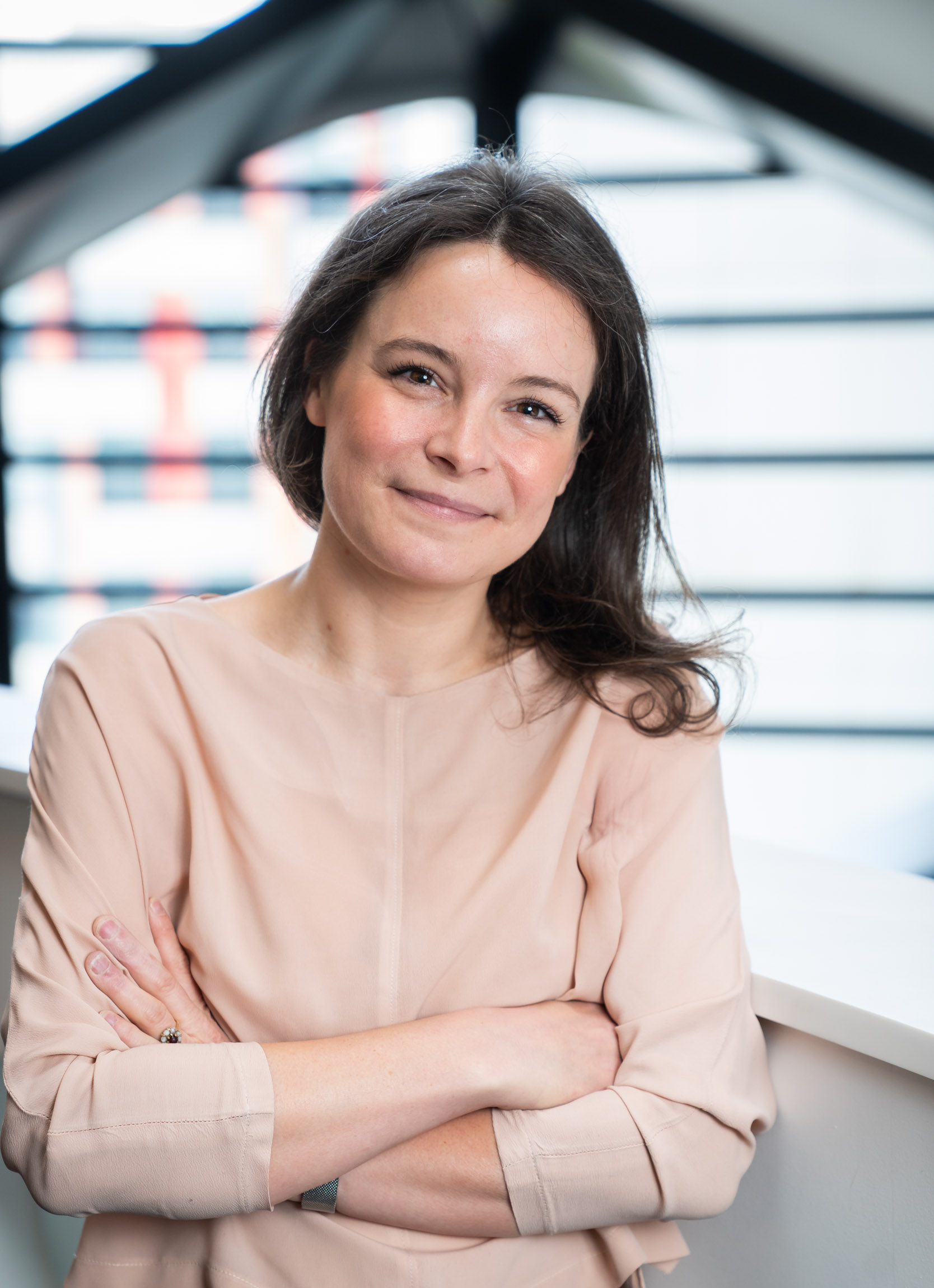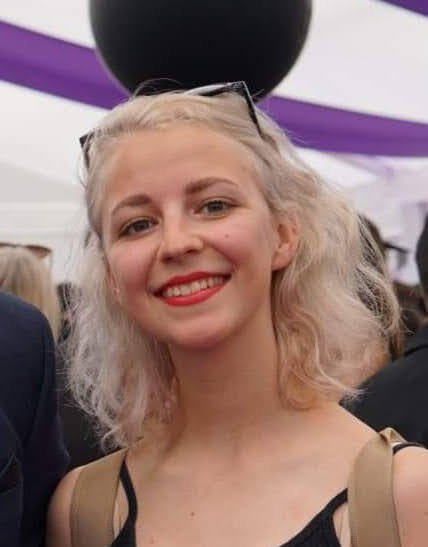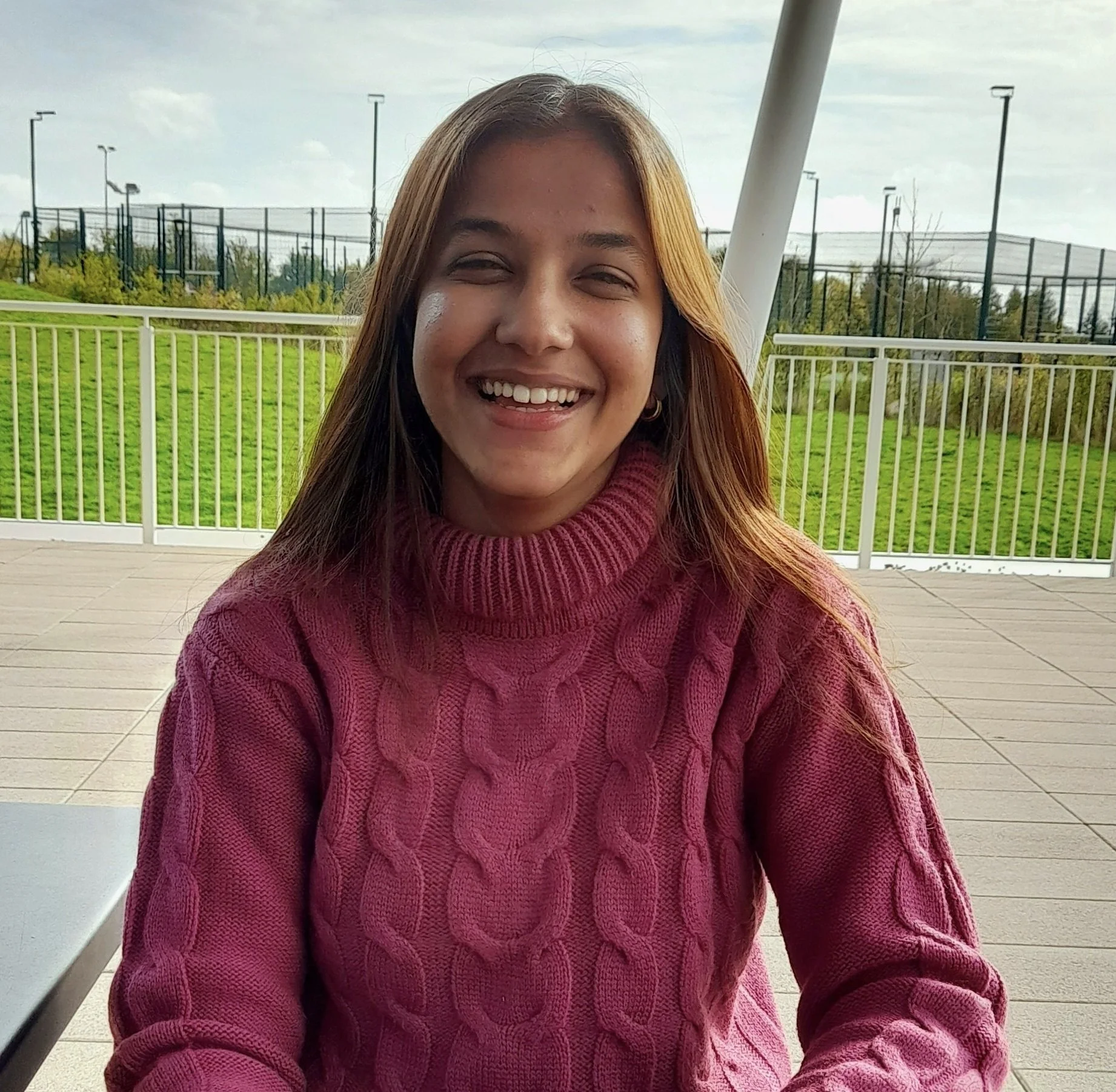Alice Pyne
Alice is an UKRI Future Leaders Fellow and Senior Lecturer in Soft Matter & Polymers at the University of Sheffield.
PosT- DOctoral Researchers
Thomas Catley, experimental
Tom is a Postdoctoral Research Associate in the Pyne Lab at the University of Sheffield. His research is focussed around using and developing state-of-the-art atomic force microscopy (AFM) methods to uncover the effect of DNA structure and conformation on DNA-protein interactions.
Tom received an MPhys from the University of Sheffield in 2018, where his Masters project involved using atomic force microscopy to investigate the structural changes in the bacterial cell wall due to antibiotic treatment. He continued on in the Department of Physics to obtain his PhD in 2022, working on the development of novel antibacterial technologies based around nanostructured polymer surfaces.
Laura Wiggins, computational
Laura is a Postdoctoral Research Associate in the Pyne lab at the University of Sheffield. Her research aims to develop and apply cutting edge image analysis and machine learning methods to determine the role of DNA structure in DNA-protein interactions.
Laura obtained a BSc in Mathematics and Statistics at the University of York in 2018, where she gained a passion for data analysis and machine learning. She then switched over to the Biology department for her PhD project which involved the development of an open-source, automated tool for cell phenotyping called CellPhe.
HARRIET READ, experimental
Harriet is a Postdoctoral Research Associate in the Pyne Lab at the University of Sheffield. Her research is focussed around using and developing state-of-the-art atomic force microscopy (AFM) methods to uncover the effect of DNA structure and conformation on DNA-protein interactions.
Harriet received an MPhys from the University of Manchester in 2019, where her masters project focused on the characterisation of self-assembling peptides using AFM. She continued in the Condensed Matter Physics group to obtain her PhD in 2023.
Her PhD was dedicated to the use of advanced AFM measurements for the nanoscale characterisation of the structural and dielectric polarisation properties of lipid membranes and their interfacial water.
PhD Students
Tobi Firth, experimental
Tobi is an MRC DiMeN DTP student supervised by Alice and Prof Helen Bryant. His research will use AFM to quantify the topology of DNA structures such as those formed during replication.
Tobi gained a B.Sc (Hons) in Biomedical Science from the University of Sheffield where he studied the role of E-cadherin in epithelial cell morphology and survival using Drosophila as a model. He went on to study for an M.Sc (Res) in Translational Oncology, analysing the difference between cancer associated fibroblasts isolated from oral squamous cell carcinomas. Tobi then worked for the Bone Cancer Research Trust as Senior Research and Advocacy Officer, managing grant calls, organising conferences and developing a patient and public involvement in research initiative.
Sylvia Whittle, computational
Sylvia is a PhD student using computational image analysis combined with deep learning methods and AFM to investigate the function and behaviour of telomeres, and their effect on the activity of shelterin.
Sylvia was previously a research technician in the group before starting her PhD, she developed image processing methods for the lab’s TopoStats image analysis software, making it as usable and open as possible for the community. She is interested in research software engineering, data science, and computational physics and has a BSc in Physics from Newcastle University where she spent much of her time modelling stellar evolution, quantum tunnelling in transistors and nonlinear dynamical systems.
Henrietta Smith, experimental
Henrietta is an EPSRC-funded PhD student supervised Alice and Prof Helen Bryant at the University of Sheffield. Her research will focus on using AFM to characterise DNA and protein structure, and their interactions under the influence of chemotherapeutics.
Henrietta obtained an MSc in the Molecular and Cellular Basis of Human Disease at the University of Sheffield, where she investigated the use of a peptidomimetic to inhibit FEN1 and exploit colorectal cancer-relevant synthetic lethal interactions. Prior to this, Henrietta gained a BSc (Hons) in Biomedical Sciences from the University of Sussex, exploring the extracellular vesicle-mediated communication between breast cancer cells and immune cells within the tumour microenvironment.
Marina Maican, Experimental
Marina is an EPSRC-funded PhD student under the supervision of Dr Alice Pyne and Dr Matthew Newton at the University of Sheffield. Her research focuses on uncovering how changes in DNA’s mechanical “fingerprints” influence its interaction with critical drug targets.
Marina earned her BSc (Hons) in Medicinal and Pharmaceutical Chemistry from Loughborough University, where she developed a strong foundation in cellular biology, chemistry and pharmacokinetics of drug action, particularly in absorption, distribution, metabolism and excretion (ADME) processes.
Prior to this, she worked as a quality assurance specialist in the pharmaceutical industry, gaining valuable experience in clinical and commercial manufacturing, which enhanced her quality and regulatory compliance skills.
Kinga Kuliga, Experimental
Kinga is an MRC DiMeN DTP student supervised by Dr Alice Pyne and Prof Helen Bryant at the University of Sheffield. Her research will use AFM to understand the role of DNA topology in its interactions with proteins and how this can be harnessed for design of novel chemotherapies.
Previously, Kinga completed an MSc-R in Biochemistry at the University of Kent where she focused on using AFM to visualise and reconstruct 3D models of individual helical structures from peptide amyloid assemblies for structural analysis. Kinga also obtained a BSc (Hons) in Biochemistry from University of Kent, where she investigated the predicted interaction landscape of proteins involved in the NER DNA damage repair pathway.
Mark Greensill, Experimental
Mark is a PhD student co-supervised by Dr Matt Newton and Dr Alice Pyne at the University of Sheffield. His research aims to characterise Telomere, Shelterin and TERRA biology using Optical Tweezers and AFM.
Previously, Mark completed his MSc in Molecular Medicine at the University of Essex where he designed and experimentally tested novel bioPROTACs to selectively degrade misfolded superoxide dismutase 1 mutants, which are causal of forms of ALS. Mark also obtained his BSc (Hons) in Genetics at the University of Leeds where he investigated the activity of CXXC domains in determining chromatin epigenetic states.
Preksha Hooda, Experimental
Preksha is an EPSRC DLA-funded PhD student supervised by Professor Alice Pyne and Professor Mark Dickman at the University of Sheffield, in collaboration with AstraZeneca. Her research focuses on developing a novel analytical pipeline that integrates high-resolution atomic force microscopy (AFM), optical tweezers, and HPLC to investigate how mRNA structure influences protein production. By quantifying RNA conformation, aggregation, and stability at the single-molecule level, her work aims to bridge structural and functional insights to accelerate the design and manufacturing of mRNA therapeutics. She obtained an MBio (Hons) in Biochemistry from the University of Warwick. Her master’s year was a research placement at AstraZeneca centred on optimising the in vitro transcription (IVT) for mRNA vaccine process development, gaining foundation in analytical sciences, purification sciences and molecular biology.
Attila Barna, Computational
Attila is a Marie Skłodowska-Curie Doctoral Fellow at the University of Sheffield, supervised by Prof. Alice Pyne. His research focuses on computational modeling of bacterial cell wall structure and its alterations following antibiotic treatment, using atomic force microscopy (AFM) and deep learning.
He holds an MSc in Physics with a specialization in Scientific Data Analytics and Modeling from Eötvös Loránd University (ELTE), where his work focused on interpretable AI methods for digital pathology, integrating spatial statistics with machine learning to enhance biological understanding. He also earned BSc degrees in Physics (Theoretical Physics specialization) and in Business Administration and Management from ELTE.
Research and Technical Staff
xinyue chen
Xinyue is the Experimental Officer for the Henry Royce Nanocharacterisation Laboratory in the Royce Discovery Centre. She actively supports academic/industrial research projects, providing expert guidance, experimental services and training using atomic force microscopy and nanoindentation.
In her post-doc positions, Xinyue developed methods to understand the mechanical architectures of both complex tissue (breast cancer metastasis in bone microenvironment) and supramolecular composites (the cell wall of S. Aureus). Prior to this, Xinyue obtained her PhD in Biophysics, MRes in chemical biology, and BSc in theoretical physics
Neil Shephard
Neil is a Research Software Engineer at The University of Sheffield in the Department of Computer Science where he collaborates with and supports researchers to develop and improve software. You can find out more about his experience and activities here.













